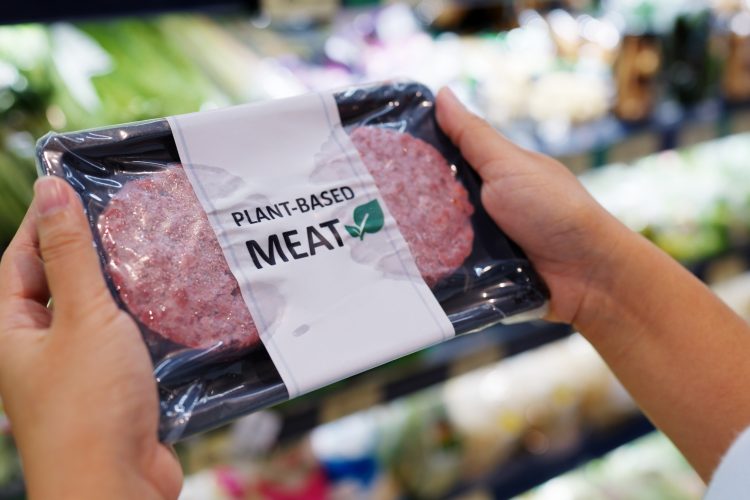Plant-based meats “fall short” on amino acid content and protein digestibility, study finds
- Like
- Digg
- Del
- Tumblr
- VKontakte
- Buffer
- Love This
- Odnoklassniki
- Meneame
- Blogger
- Amazon
- Yahoo Mail
- Gmail
- AOL
- Newsvine
- HackerNews
- Evernote
- MySpace
- Mail.ru
- Viadeo
- Line
- Comments
- Yummly
- SMS
- Viber
- Telegram
- Subscribe
- Skype
- Facebook Messenger
- Kakao
- LiveJournal
- Yammer
- Edgar
- Fintel
- Mix
- Instapaper
- Copy Link
Posted: 22 April 2024 | Grace Galler | No comments yet
A new study has found that some plant-based meats may lack essential amino acids and have lower digestibility compared to traditional meats.


According to a recent small-scale study, certain plant-based steaks and plant cold cuts have an amino acid content and protein digestibility rate that “falls short” when compared to traditional meats.
The study, published in the American Chemical Society’s Journal of Agricultural and Food Chemistry, was carried out by a team of researchers based in Italy, and was headed by Tullia Tedeschi.
Data from Statista reveals that the global plant-based food market is expected to reach $77.8 billion US dollars in 2025. However by 2030, the market size has been forecasted to more than double.
When considering plant-based meat alternatives, the researchers explained: “Meat-free burgers or ground beef mimics might come to mind first, but the options for plant-based alternatives have expanded to include whole cuts of meat resembling steaks and chicken breasts, as well as sliced cold cuts like salami or bresaola — a type of cured beef.
“While these newer products haven’t been studied as extensively as burger-style products, they are becoming more widespread and popular among consumers. As a result, it’s important to understand how they differ nutritionally from the meats they aim to replicate and replace. In other words, how well do our bodies digest and gain nutrition from these foods?”
To carry out the study, the research team analysed three different plant-based steaks and three different plant-based cold cuts. Veal steaks were used as a comparison point for the plant steaks, meanwhile ham and beef cold cuts were compared to their respective plant-based substitutes.
Then, the researchers measured the fat, salt and protein content of each before the samples underwent a simulated digestion in the lab to understand how well the proteins break down in a human’s digestive tract.
Results revealed that the plant-based products contained “more carbohydrates, less protein and reduced amino acid content than their meat-based counterparts”. Going further, plant steaks and the veal samples were found to be comparable in terms of essential amino acid content and digestibility.
Additional findings revealed that plant cold cuts “generally had less salt than the meats and contained fewer essential amino acids” however different products also showed “differing levels of digestibility due to the variety of ingredients they contain”.
Overall the researchers have concluded that the nutritional value of the plant-based products “depended greatly on the plants used to create them”, and sparked a “wide variation in their amino acid content and the digestibility of their proteins”.
However, all of the samples within a particular meat type showed comparable nutritional profiles.
The research team have concluded that the study can be used to demonstrate that “careful consideration should be taken when replacing meat products with plant-based alternatives, and that these differences in nutritional profile should be communicated to consumers to allow for informed decisions”.









